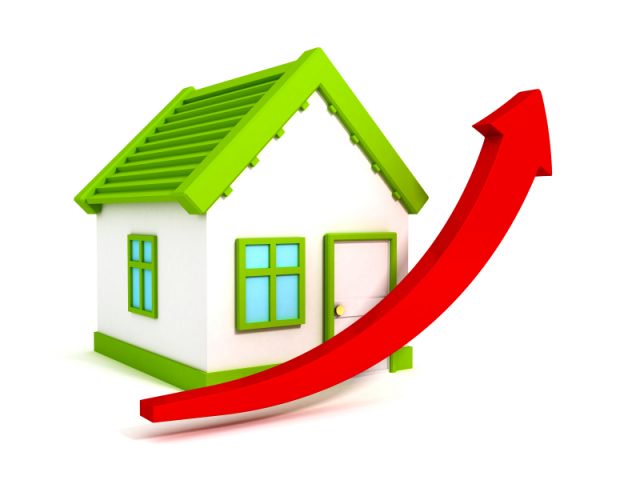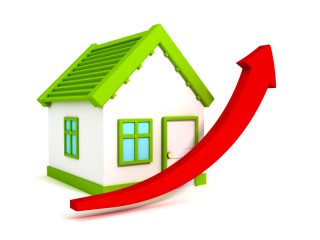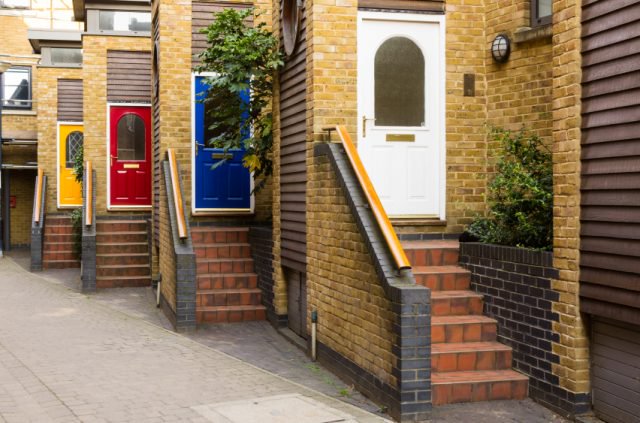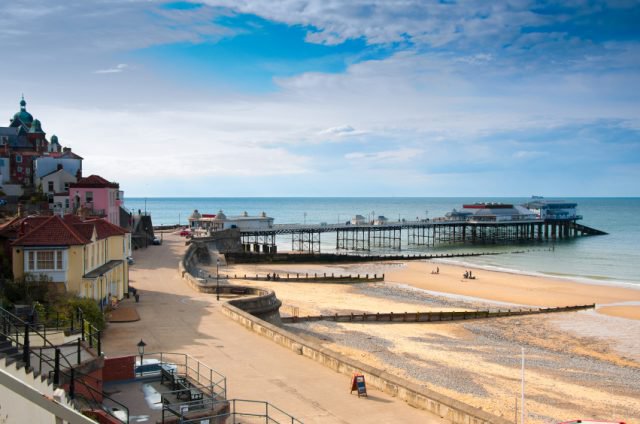The latest RICS Residential Market Survey has indicated that house price inflation is continuing to grow, driven by the mismatch between a fall in new instructions and increased buyer demand.
Rise and fall
As a result, house price inflation has risen in each of the last seven months, after easing towards the back end of last year.
Strong growth has been recorded in East Anglia, Northern Ireland and Yorkshire and Humberside, although a large majority of areas are seeing a rise in price momentum.
Data from the latest report shows that the average house price in England and Wales rose by £1,900 in August. This was the sharpest rise since August last year and takes property prices to their eighth peak this year, with prices currently standing at an average of £282,816 after an annual increase of 4.1%.[1]
In addition, the Index found that overall property sales have fallen below 2013 for the first time this year, following a drop of 14% in the last month. What’s more, the lenders showed that vendor listings have fallen for the seventh consecutive month. New instructions have still not recorded any substantial upturn since mid 2013, which in turn has pushed average stock levels to new lows.[1]
Regional variance
Supply remains tight with the report showing agreed sales increased moderately for the fourth month in a row. Regional movements however varied substantially from the national trends. The West Midlands, the North and the South West all posted a solid growth on transactions, but East Anglia and the North West have seen falls in sales volumes.
Looking to the future, there seems to be a brighter outlook, with all areas of the UK expected to post good sales growth during the coming year. The outlook is particularly good in Scotland and Wales.
68% of RICS respondents still believe current market valuations to be either at or below fair value. Perceptions in East Anglia, London and the South East however differ significantly, with more than half or respondents believing that residential property is overpriced in each of these locations.[1] At the other end of the scale, Northern Ireland, Scotland and the East Midlands have the greatest proportion of respondents who believe prices represent fair value or below at present.
Growth
‘House price growth now firmly has the bit between its teeth and August witnessed the strongest monthly boost for a year,’ said Adrian Gill, director of Reeds Rains and Your Move estate agents. ‘Average property values across England and Wales have jumped 0.7% (equal to £1,876) since July, which is the biggest monthly increase seen since August 2014. So far in 2015, monthly price rises had struggled to break above the 0.5%, so this clearly marks a step up in pace, as a shortfall of summer sellers puts buyers in hot contention for properties.[1]
Gill went on to say that, ‘more importantly, all ten regions of England and Wales are showing annual increases in house prices-the last region to experience a year-on-year fall in property values was Wales in July 2013.’ Continuing, he said, ‘home sales across England and Wales reached 76,700 in August, down 14% on July levels. This should be taken with a pinch a salt – July was an exceptionally strong month for transactions, and activity in August can be seen as balancing this out. But August is also the first time in 2015 to date that property sales have fallen below their equivalent month in 2013. In the three months to July 2015, property sales have dropped 3% year-on-year. Across all of England and Wales, the North is the only region where activity has increased over the period, with home sales up 3% during May to July 2015 compared to the same three months in 2014.’[1]

RICS report indicates surge in house prices
‘The nationwide mismatch between sellers putting homes up for sale and buyer demand should warm up measures of growth for the autumn. August represented the twelfth month in succession that the annual rate of growth declined – down steadily from 11.1% in August 2014, to 4.1% last month. But encouragingly, we’re seeing this downtrend start to level-off now, suggesting that the annual rate of price rises may start to pick-up again soon, driven by the strengthening monthly improvements that are emerging. Property price growth in London has been waning most notably recently, but this appears to be following a similar pattern to the nationwide trend, and after bottoming out, we are beginning to see signs that house prices in the capital are starting to gee up. Once again, London and the South East are boosting our overall measures of average annual change for England and Wales as a whole,’ Gill added.[1]
Stark reminder
Andy Sommerville, Director of Search Acumen at RICS, also noted that, ‘agreed sales are chugging away according to the latest RICS data, but speculation around property price hikes is a reminder of the stark gap between pent-up buyer demand and availability of housing stock.’[1]
‘House prices are showing no signs of abating, and the glaring supply shortage desperately needs to be addressed. The reported rise in tenant demand over and above landlord instructions shows the private rental sector is also suffering a squeeze on capacity. The government’s promise of more brownfield development and extra homes is a step in the right direction, but the pledge to deliver 275,000 extra houses by 2020 won’t come close to closing the gap,’ Sommerville continued.[1]
Concluding, Mr Sommerville stated that, ‘For now, rising prices have not dampened interest or buyer enquiries, which means conveyancers can expect fierce competition in the market for the remainder of the year. It looks like being a busy end to the year, so it’s vital that business systems and processes are set up to deliver a quality service offering that exceeds expectations.’[1]
[1] http://www.propertyreporter.co.uk/property/rics-reports-surge-in-house-price-inflation.html









